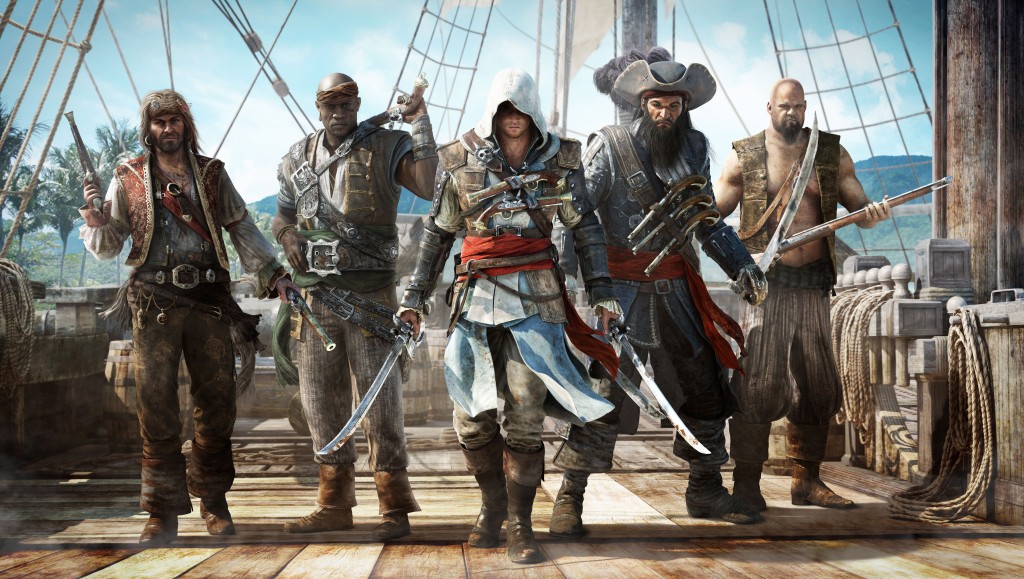







I think impeccable storytelling in games will come when the technology and intuition for giving a virtual world more creative, literary and technical depth than ever before finally arrives. Video games today are in a primitive form compared to what they're aspiring to be, despite the leaps of innovation in storytelling, graphics, interaction and game design thus far. There are still so many limitations.
Making a game that has multiple (seemingly endless) story branches for compelling replayability, plus all the polish it takes to enhance immersion, with the right mechanics for play takes a lot of money, time and effort to do. More innovation is needed to really get that far, and get it right. There is also the cultural issue associated with games today, though there are more gamers that want to see games take a new direction. A lot of games today are more so focused on the flash of new technology and gamer tropes than they are about making creative masterpieces within the medium. We need to give games the time to mature and grow. They've gone as far as eliminating the uncanny valley, allowing for more believable characters in story what’s the next step for computer entertainment.

@-Crimsix- I disagree. There are very old movies that are now considered as art, and all of them did not even have the pinch of technology and even budget that modern movies now have. What they did have however, was impeccable imagination and masterful usage of what they're provided of.
I also disagree that a seemingly endless story branch is innovation - it is nothing more than a glorified sandbox game. To be honest, I see it as a weakness.
Let me play the game once, and just leave me in awe to the pure genius of the game. Replayability is for mundane enjoyment.

Great article.
Although I disagree that Bioshock Infinite was a good example of storytelling. It was a sequence of scripted in-game cutscenes(even if the player viewed them from a first person perspective, they are still cutscenes) with breaks of dull arena-style gameplay.

@Boulougou I agree with you to a certain extent. I never actually said it is a good example of storytelling, in fact it's not the perfect example of storytelling, however I appreciated how it was able to show you things without taking away the players control, this is an admirable feature in my eyes. If this aspect was taken out and improved, it has potential.

I fully agree that the most memorable moments in games have been story created by myself, in my own imagination, arising from the mechanics of the game. Everything from the goals I set for myself in minecraft, to the quick and fatal stories that evolve while playing rougelikes, to the epic stories that evolve while playing strategy games like civ and total war.
I quickly get very bored with those games that takes you through a pre-set story where I as a player is just forced to "act out" the action scenes.


The problem I find is that it is very difficult to hit a huge level of immersion with a story. Every player is different so there will always be individuals who think a story was good or a story was bad. Here is a take from my perspective of a few games I have played recently.
Eve Online (sandbox space MMO). In eve there is lore no real story but the game world is so open you easily become immersed because it becomes your world and your world gets influenced by other players just like you influence theirs. This is the best example of story and where games should be.
David mentioned The Last of Us as a great story for me I did not like it I feel I wasted my $60 on the game. I wanted to like it but the story after the initial opening completely lost me from an immersion point of view. I just could not get hooked. I think the sometimes difficult tedious survival mechanics get in the way of enjoying it. (I do not like easy but so many of the game mechanics for me felt like it just pulled me out of the amazing world they created)
Call of Duty Ghosts. Now many people say the call of duty campaigns are horrible. On the other hand I think sure they are cliché story arcs but the way it is presented is very immersive. I get sucked into the combat to the point where I fear for the characters life and it effects all of my tactical decisions. The way they tell the story just really engages my imagination.
Heavy Rain. OMG immersive. More like a movie then a game as most gameplay was quick time events but it was still one of the most immersive stories I have ever been witness too. All of the decisions really feel like they had a impact on the outcome.
Final Fantasy XIII and XIV (mmo reborn version). For me this was very immersive. Square really knows how to get you to care about what is going on. The only issue I think they have especially in XIII is they like difficult way too much. Once you get to a boss that is really difficult and you need to spend hours like 4 hours or more reloading saves trying to figure out how to beat it. Kills the immersion and flow of the story.
So I do have a few conclusions. It is hard to have complex difficult mechanics along with a immersive story. I find that the second I start to struggle with the games mechanics that the story fades away and you are left with nothing but frustration. I am a decent gamer I like a challenge I hate over complex mechanics. Or situations that just seem like a giant road block you can not get passed without hours of trying over and over.
The real key to hook someone like me into a game is to have the amazing immersive story combined with fluid gameplay that melds into the story. There should never be something there in the game that says hey you suck you can't figure this out. The second I have to stop playing and min/max strategy to beat a boss you just lost me and odds are I will put the game away. I hate min/max (have to have the perfect strategy) because it completely takes me out of control of the characters destiny.
Fluid and engaging is all I ask. Call of Duty, Assassins Creed, Elder Scrolls Skyrim did a good job with this. Last of Us and FFXIII did a bad job of this for me. Do you think it is funny that a amazing every loves the game like the Last of Us can actually be a bad game to someone else?

I actually wrote a paper in my English class about how video games should be viewed as a form of art. I think this article explains the conundrum that we find in video games. They are just so new in respect to all other mediums. Look back at the time period when movies were first displayed. They were viewed for a long time negatively and now are one of the most used storytelling devices.
I think in the next few years we will really see the development flourish in the ways that stories are being told within video games. Which we are already witnessing in some of the upcoming titles if they can deliver on their aspirations.
I really enjoyed your article, great read on the subject, and not one coming from some outside snob who has never truly experienced the story told behind video games.

The problem I find is that some games are trying to be movies. The more they try, the worse they seem to be. A game's first and main objective is to be fun in my opinion, and it seems pretty much logical. It's called a GAME for a reason. If a game foregoes the fun part and focuses on the story only, why would anyone play it again? My fondest memories are of FUN games, if they have a likeable story that's just icing on the cake. There are exceptions like Planescape: Torment, but games like that are an anomaly. At least Torment tried to be a book, not a movie, and it worked more for it despite its arguably lacking combat mechanics.
Anyway, a game can tell an amazing story if it focuses on its strenghts. I'm of the mind that a game's main strenght in storytelling is in its "show, not tell" capabilities. Point in case: The Souls series.
Most people will tell you that they have no story whatsoever. And well, I could agree and disagree with them. The games do not shove anything down your throat, but if you care, if you look for it, there is an awesome story behind all that is happening. If you pay attention to the details, the way it is told and the way the player can discover his/her own circumstances is a clear indication that the developer knows what they are doing.
It may not be the most original story ever, but the way it is conveyed to the player, THAT, I think, is the best strenght that games have in storytelling. A game can try to emulate a movie and fail miserably at it (many//most AAA games in the last few years), or go for a book style storytelling like Panescape: Torment which seems to actually work, but the average person doesn't care and won't read anything. OR they can be stupid fun, and take advantage of the atmosphere, the scenery, the items, etc., to tell you a fantastic tale. The Souls games are a lot of fun to play (depends on the player of course, some simply don't like them), they are not a big hit because of their story, but because they are fun. For those that care, like I do, there is a story for you, and damn I love it.
Games are not movies. The so called best games of this year, like Bioshock Infinite, Tomb Raider, and I don't know what else... I think they are terrible. They seemed to be made by a team of Hollywood rejects instead of a team of game developers with their overfocus on story and characters (which sucked anyway), instead of being fun and ended up in mediocrity in both story AND gameplay. What was the point of sacrificing the fun aspect of your game if the story is terrible or mediocre?

After my research on gaming and games, I'd have to say that games aren't a form of storytelling. I just don't feel comfortable calling them a form of storytelling.
Sure, you can tell a story alongside a game, and yes you tell a story using game design (location, characters, plot etc) but games in general are not a form of storytelling.
I like this definition of games from Wikipdedia:
"Crawford's definition may thus be rendered as[original research?]: an interactive, goal-oriented activity, with active agents to play against, in which players (including active agents) can interfere with each other."
I like the assessment of games by "sunandshadow" made here:
http://www.gamedev.net/topic/652775-whats-in-a-game/
as to the effect games have on society, and what makes games so integral to society.

Games have always had the possibility and the evidence that storytelling in games is one of the greatest methods of portraying a story. They take the reader (a.k.a the player), and immerse them deep into the plot. Though what makes video game the greatest methods of storytelling, is the fact that yes every story will have the same ending but the path that is taken to achieve that ending is changed person to person.
Stories in games are always compared to other mediums, and it never goes well. I think we need to rethink how games tell stories, and consider them a new medium of storytelling.
I personally think that video games will only be art if it manages to convey an experience that would not be possible in any other medium.
The problem I see with storytelling in games is that it just copies movies, a 'blockbuster' type game if you will. The player's experience is still in the mercy of the game's story (it's no different than a book, or a movie, only this time you control some parts)
I think one very good example of a game as art is Rohrer's Passage. This is because there is absolutely no way you could copy it in any other medium: the 'story', or 'experience' is told completely using the mechanics. How you play the game shows the story in its form.
I think good story-telling in games and art games are very different. MGS1 had a pretty good story, but I would not consider it 'art-sy'. MGS2 however, had a pretty 'OK' story, but I consider it full blown art, because it doesn't tell it story at face-value, but through mechanics (how the game plays).